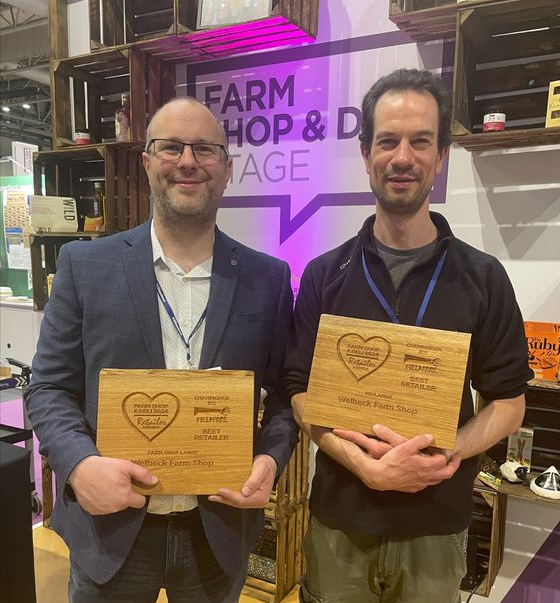Mum takes Great Strides in Yorkshire for son who has cystic fibrosis
Loving mum Mandy Taylor is taking on yet another gruelling challenge event to raise money for the Cystic Fibrosis Trust. Mandy, 50, is taking on Great Strides 65 in The Yorkshire Dales, an epic 65kilometre, or 40mile, trek through Hawes, Thwaite, Muker & Reeth which climbs to a height of 1290m over the course of 17 hours.
“My son has cystic fibrosis and so my husband Chris and I have done various fundraising activities for the Trust over the years. When I saw the Great Strides event advertised, it was entirely different to anything we had done before”, says Mandy.
Great Strides 65 was set up back in 2015 to raise money for the Cystic Fibrosis Trust.
Originally just taking place in the Surrey Hills, it has now grown to include the Peak District, Brecon Beacons and Yorkshire Dales, and now even includes the three-peak series, scaling Snowdon, Scafell Pike and Ben Nevis, the mere thought of which is enough to exhaust anyone. But none of that phases Mandy, who is taking on her third of the four 65k treks.
She’s doing all this for her son Sam, who has cystic fibrosis, a life-limiting genetic condition which affects around 10,400 people in the UK. It not only affects the lungs and digestive system but the whole body, making activities like walking, sleeping and even eating a daily challenge. People with cystic fibrosis often look perfectly healthy. But it’s a lifelong challenge involving a vast daily intake of drugs and time-consuming physiotherapy.
Mandy won’t be alone when she takes on yet another epic challenge. Great Strides is a team event, with teams of four or five, plus a support driver, working together to reach the finish line.
“I’ve run a marathon and two half marathons for the Trust, but before Great Strides I hadn’t organised a big group of people like this before. Our team name is the ‘Optimistic Striders’.
We’re optimistic for the future treatment and a possible cure for cystic fibrosis and we’re also optimistic that we’ll be able to finish the treks!”
“We’ve had great fun on the training walks and explored some beautiful countryside that I never would have seen otherwise. The fun and camaraderie while training and during the events themselves have created memories that will always stay with me. The exhilaration of completing such a mammoth challenge is also hard to beat!”
After taking part in Yorkshire Great Strides this year Mandy will have completed three of the four treks and has been contemplating going for the full set, “That depends”, says Mandy, “on who I can blackmail, coerce and persuade to join us again! But seriously, to anyone who’s considering taking on one of these events I’d say, do it! You’ll have a fabulous time, you’ll get fitter, and you will really get to know your teammates better!
And best of all, you’ll raise lots of money towards the vital work of the Cystic Fibrosis Trust.”
She’s hoping all this will help make a real difference in cystic fibrosis research.
“A breakthrough in the research and treatment of CF would literally be life-changing. We are all very mindful of the reduced life expectancy in CF and as Sam gets older, this tends to take greater emphasis.”
“The whole family has been getting involved in fundraising. Sam’s dad Chris and his brothers Josh and Jacob are talented musicians and have put a lot of effort into holding charity music events over the years. Alex Lleo, a local singer songwriter has also supported them over the years and many of our friends have helped stage the events. I tend to do more in the way of physical challenges as I can't sing a note or play an instrument, but I can run and walk!
Kate Hall, Events manager at the Cystic Fibrosis Trust said, ‘Mandy has led her teams through Brecon Beacons and the Peak District already, so we’re thrilled she’s making the journey North so take on Great Strides Yorkshire Dales this year. People like Mandy are vital to what we do in the fight for a life unlimited by cystic fibrosis, nor would we be able to offer the level of support we currently offer to those with CF and their families.”
Great Strides events consist of 4 treks, 3 peaks and 1 ultra-marathon. Challenges include the Peak District, 1 June 2019; Surrey Hills, 8 June 2019; Brecon Beacons, 29 June 2019; Yorkshire Dales, 6 July 2019; Snowden 10-12 May 2019; Scafell Pike, 2-4 August 2019; Ben Nevis 28-30, September 2019; Triple Challenge, 2019 and the extreme Ultra Marathon.











